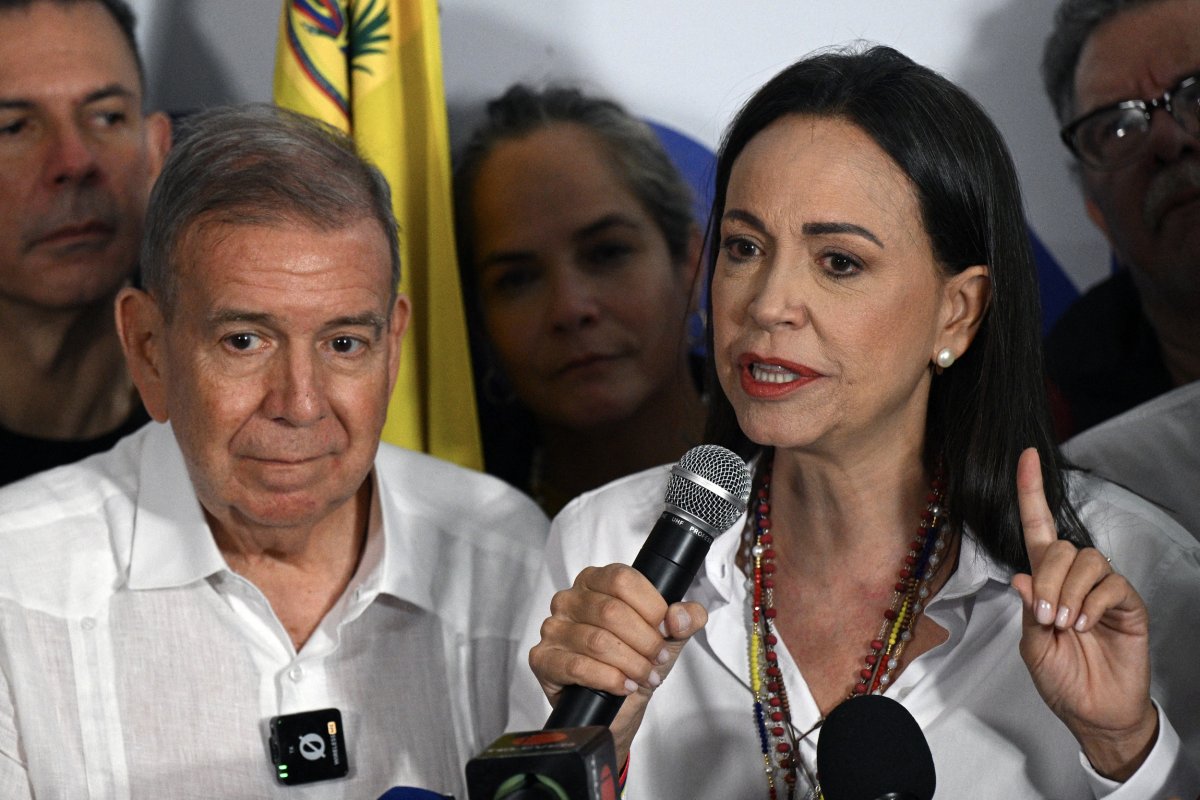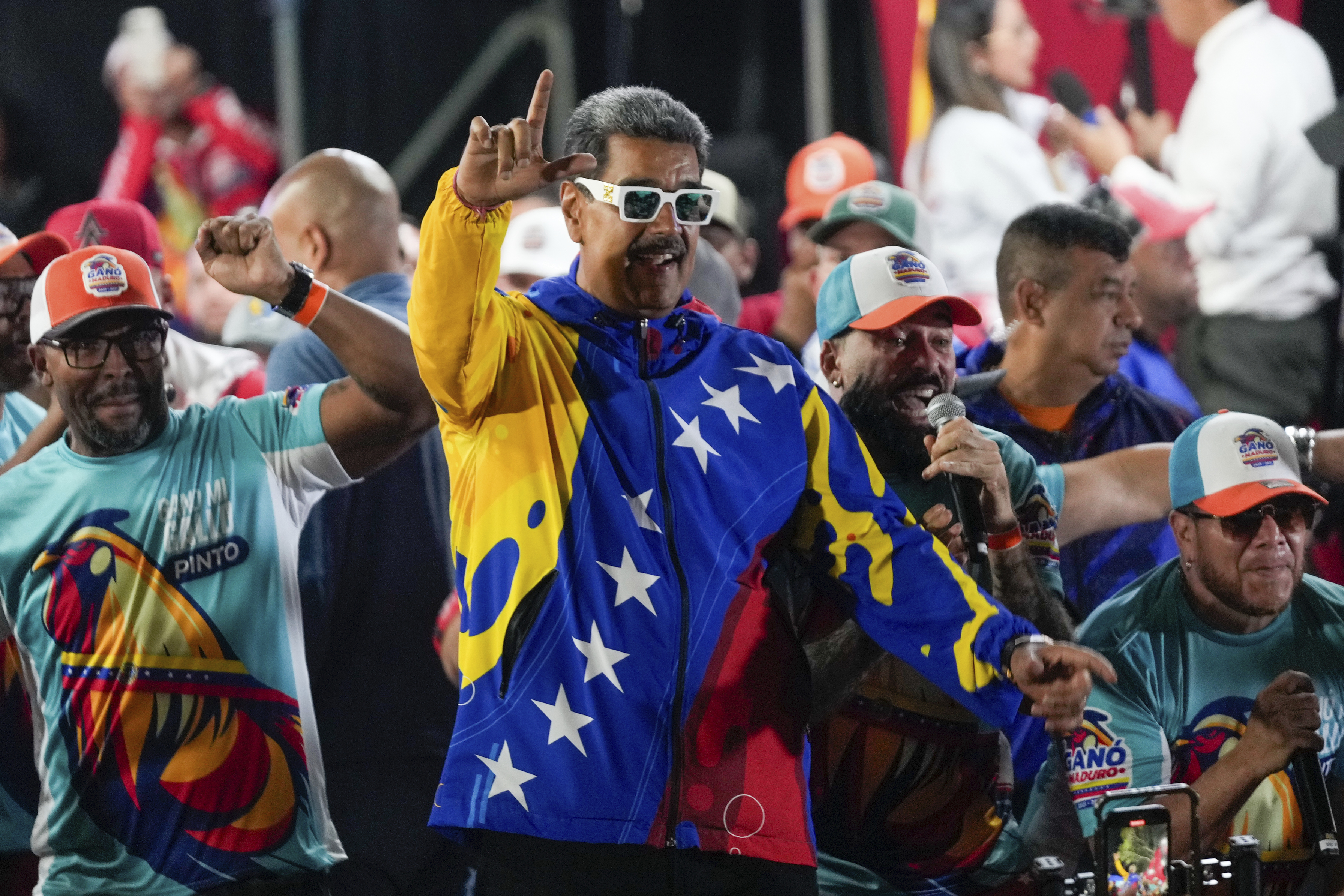On Sunday night, millions of Venezuelans anxiously awaited a political announcement that could redefine their troubled landscape since Hugo Chavez took office in 1998. Sadly, that hope dimmed when Nicolás Maduro was swiftly declared the winner of a vote many consider rigged.
The National Electoral Council (CNE), backed by Maduro’s regime, confirmed his victory over main opposition candidate Edmundo Rodriguez, granting Maduro a third six-year term. This announcement comes as Venezuela’s economy struggles to revive and its citizens yearn for change.
Maduro’s credibility has been in doubt since his first election win in 2013, stepping in as Chavez’s successor. Officially, he secured 51% of the vote, contradicting earlier polls that suggested Rodriguez was leading by a significant margin.

“Everyone knows what happened,” said Rodriguez, urging calm among supporters while calling for the government to avoid escalation. Maria Corina Machado, a prominent opposition figure, claimed Rodriguez garnered 70% of the votes.
Despite facing arrests and intimidation, Rodriguez hasn’t asked his supporters to protest, advocating for non-violence instead. However, Caracas erupted in traditional protests dubbed “cacerolazo,” with residents banging pots and pans in discontent.
This scenario feels eerily familiar to many Venezuelans. While Rodriguez and Machado hold onto hope by comparing their data to the CNE, experts believe this could mark the end of attempts to dislodge the socialist regime that has reigned for 26 years. Previous international pressures, including U.S. sanctions and threats of military intervention, have failed to unseat Maduro.
Over the last decade, millions have fled Venezuela due to destructive economic policies, hyperinflation, and the impacts of the pandemic. Since 2010, the number of Venezuelans migrating to the U.S. has nearly tripled, according to the Migration Policy Institute.
Sunday’s election was a setback for the Biden administration, which hoped eased sanctions would lead to a fairer electoral process. Secretary of State Antony Blinken expressed “serious concerns” about the legitimacy of the election results, urging transparency from electoral officials.
What Lies Ahead?
Venezuela’s future remains unclear as the opposition vows to fight for a transparent vote count and the reinstatement of democracy. Increased international pressure could result in diplomatic repercussions for Maduro’s already isolated government.
Despite enduring international scrutiny, Maduro has maintained some support from allies like Russia and certain Latin American countries. Gonzalez has requested electoral authorities to disclose voting data from 30,000 polling stations but insists on peaceful methods.

Opposition leaders, including Julio Borges, have urged the military to “defend the will of the people,” echoing sentiments expressed by Machado after the CNE’s announcement.
Carolina Jiménez Sandoval from WOLA emphasizes the need for the opposition to maintain pressure on the government and the international community, ensuring electoral transparency. “They must access all relevant electoral information to validate the election outcomes,” she stated.
Some experts, like Professor Borda, worry the situation may worsen. She argues that Maduro will likely resist releasing voter data, capitalizing on global distractions from the ongoing conflicts in Gaza and Ukraine.
A recent poll revealed that about a quarter of Venezuelans are contemplating emigration, mainly for economic reasons. Interestingly, many indicated they would reconsider if the opposition prevailed or if the economy improved.

Furthermore, Maduro could ramp up pressure on the opposition, particularly targeting Machado, who has already faced obstacles in her candidacy. Previously labeled an agent of Washington, she faces accusations from Venezuela’s attorney general about electoral interference.
Should the current isolation continue, Maduro has proven adept at navigating tough political waters over the years. His previous attempts to repress challenges, like Juan Guaido’s declaration as interim president in 2019, ultimately fell short, leaving Guaido in exile in Florida.
